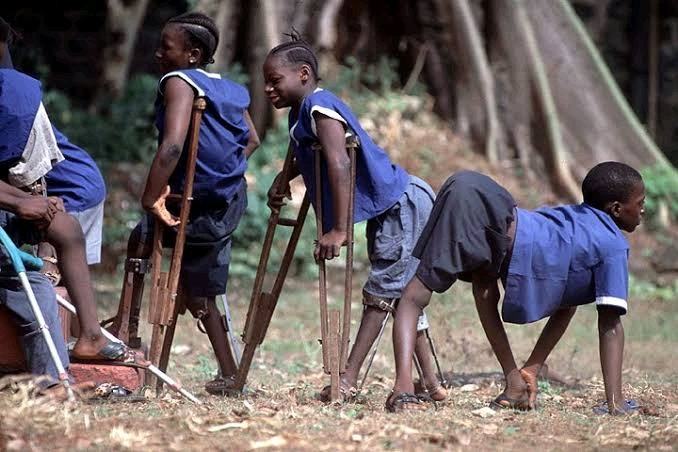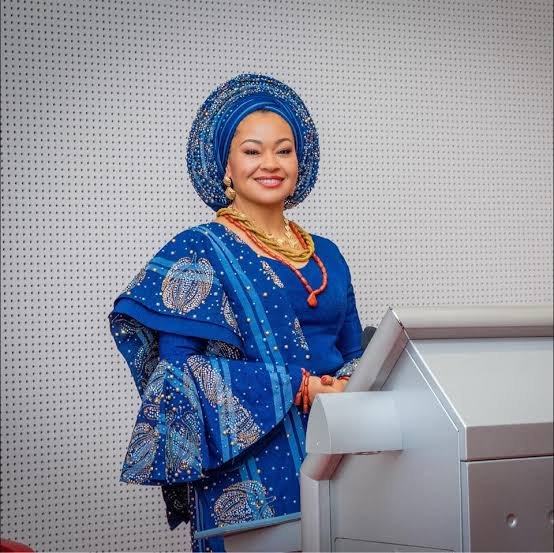In the face of significant international and national achievements in public health, the eradication of polio in Nigeria remains a monumental success. Kano State, once a key hotspot for the disease, joined the ranks of polio-free states with much celebration.
However, as of early 2025, the reality on the ground has raised concerns. A combination of political dynamics, inadequate funding, insufficient community education, and systemic failures threatens the gains made in the fight against polio in the state.
AHR Correspondent, Hussaini Kafi in this report delves into the causes behind this resurgence, highlighting the challenges, political influences, and budgetary discrepancies that may derail Nigeria’s polio eradication efforts.
The Early Triumph: Polio-Free Status in Kano
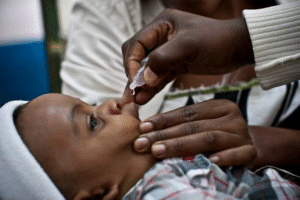
Kano’s journey to a polio-free state was a hard-earned victory, one that was achieved through tireless efforts by health workers, international agencies, and the Nigerian government. The state was once a breeding ground for polio, with widespread skepticism about vaccines, particularly in northern Nigeria, where cultural and religious beliefs heavily influenced healthcare decisions. The landmark moment came when the World Health Organization (WHO) and the Nigerian government declared the state polio-free, marking a critical step in Nigeria’s fight against one of the world’s most feared diseases.
However, this victory has proven to be fragile. In early 2025, reports of new polio cases and the potential for outbreaks in Kano and other northern states have reignited fears of the disease’s re-emergence. The root causes of these concerns are multifaceted, involving political, societal, and systemic factors that need urgent attention.
Politics and the Reality of Vaccine Hesitancy
Historically, resistance to polio vaccination in northern Nigeria has been fuelled by political, cultural, and religious factors. Misinformation and distrust in the vaccine, particularly in the northern parts of the country, have created significant barriers to full immunization coverage. Many northern leaders were initially skeptical about the vaccine, citing fears that it was part of a Western plot to sterilize Muslims. This skepticism culminated in widespread refusals to vaccinate children, leading to outbreaks of the disease.
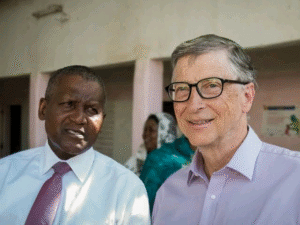
The situation reached a turning point when global figures like Bill Gates and Nigerian philanthropist Aliko Dangote took it upon themselves to address the concerns of northern communities. In 2009, Gates and Dangote visited Kano and other northern states to engage with local leaders, religious authorities, and community members, making the case for the polio vaccine’s benefits. Their mission was not only to convince the masses but also to change the narrative around the vaccine, emphasizing its positive impact on public health.
Despite these efforts, vaccine hesitancy remains an issue in many parts of northern Nigeria. The reluctance is partly due to a lack of trust in both the government and foreign organizations, as well as persistent misinformation about the vaccine’s safety. This situation is compounded by political declarations of success, which do not always reflect the complexities on the ground. Political leaders often claim victory over polio, but their statements are not always matched by practical actions such as sustained funding or comprehensive education campaigns.
Budgetary Shortfalls and the Impact on Vaccine Availability
One of the most pressing issues threatening the sustainability of Kano’s polio-free status is the lack of consistent funding. While political leaders may publicly celebrate the eradication of polio, these proclamations often do not translate into long-term commitments to funding vaccination campaigns or strengthening the healthcare system. In recent years, budgetary allocations for polio eradication have been insufficient, and the state has struggled to ensure that funds are effectively utilized.
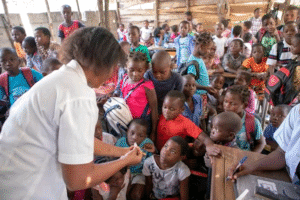
For example, while the federal government and international organizations like the Bill & Melinda Gates Foundation have played a critical role in funding polio vaccination campaigns, there is still a significant gap between the financial commitments made and what is actually spent on the ground. Health experts argue that the lack of financial accountability and transparency is a key factor in the vulnerability of Kano to a potential polio resurgence.
The Strain on Health Workers and Infrastructure
Another major issue plaguing Kano’s fight against polio is the lack of trained health workers. Despite efforts to train and deploy health workers across the state, there is still a severe shortage of personnel capable of conducting the extensive vaccination campaigns required to maintain a polio-free status. Many rural areas in Kano remain underserved by health professionals, and those who are available often lack the necessary resources to carry out their work effectively.
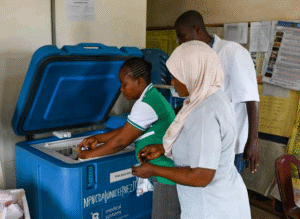
The issue is exacerbated by the poor motivation of health workers, who face challenges such as low pay, lack of professional development opportunities, and an unsafe working environment. In some areas, health workers report having to deal with hostile communities that are either indifferent to the importance of vaccination or outright resistant to it. The failure to adequately incentivize and support health workers further hampers the progress made in polio eradication efforts.
Moreover, Nigeria’s poor infrastructure is another barrier to the success of vaccination campaigns. In many parts of the country, including Kano, electricity shortages make it impossible to properly store vaccines, which require refrigeration to maintain their efficacy. This shortage of reliable power, coupled with insufficient facilities for vaccine storage, means that large-scale vaccination campaigns face substantial logistical challenges.
Nigeria’s reliance on importing vaccines is another critical weakness in the system. The country is forced to beg for vaccines from international organizations, as it lacks the capacity to produce its own. This dependence on external sources makes Nigeria vulnerable to fluctuations in supply, and in some cases, delays in delivery. The absence of local vaccine production is a persistent issue that needs to be addressed to ensure the long-term success of immunization efforts.
Experts Insights: A Call for Comprehensive Reforms
To understand the broader implications of these challenges, we spoke with Dr. Musa Ahmed, a public health expert and vaccination specialist who has worked extensively in northern Nigeria. Dr. Ahmed believes that the issues plaguing polio eradication efforts in Kano are symptomatic of broader systemic problems in Nigeria’s healthcare sector.
“Polio is a disease that can be eradicated if the right steps are taken,” Dr. Ahmed says. “However, the reality is that the government must prioritize healthcare and work to eliminate the gaps in funding, infrastructure, and workforce capacity. There must be a commitment to providing health workers with the tools they need and ensuring that vaccines are available and stored properly.”
Dr. Ahmed also emphasized the need for more educational campaigns to address vaccine hesitancy in northern Nigeria. “Education is key,” he explains. “Communities need to be informed about the benefits of vaccination, and leaders must take responsibility for changing the narrative around vaccines. This requires a concerted effort from both local and national governments, as well as international organizations.”
The expert also stresses the importance of local vaccine production. “Nigeria cannot continue to rely on external sources for vaccines. The establishment of local vaccine production facilities is crucial not only for polio but for broader immunization programs,” Dr. Ahmed adds.
The Way Forward: Renewed Commitment and Accountability
As Kano grapples with the threat of polio’s reemergence, it is clear that the road ahead requires a renewed commitment to public health and vaccination. This begins with holding political leaders accountable for their promises and ensuring that funding is allocated and spent effectively. Health workers must be adequately supported and incentivized, and the infrastructure needed to store and distribute vaccines must be improved.
Most importantly, there must be a focus on education and community engagement. The lessons learned from the efforts of Bill Gates and Aliko Dangote in the past must be applied on a larger scale to address vaccine hesitancy in northern Nigeria. Public health campaigns must be more robust, transparent, and culturally sensitive to the needs of the local population.
Kano’s fight against polio is not over, and it remains a bellwether for the rest of Nigeria. With sustained effort and the right political will, it is still possible to secure a polio-free future for the state and the country. However, this requires immediate action to address the political, budgetary, and logistical issues that currently threaten the country’s progress.
By ensuring that both the political will and the necessary resources are aligned, Nigeria can truly fulfill its promise to the world—eradicating polio for good.

